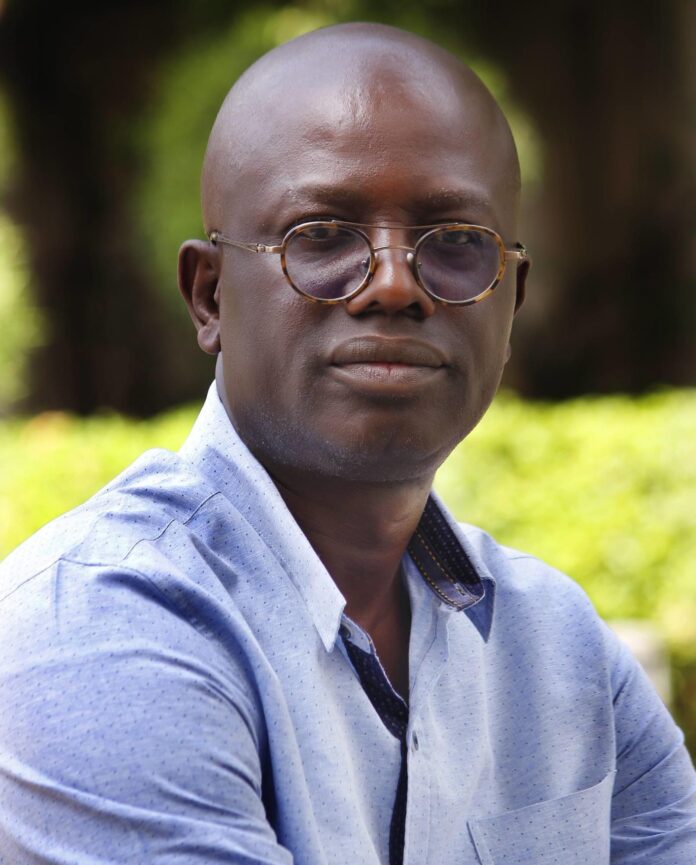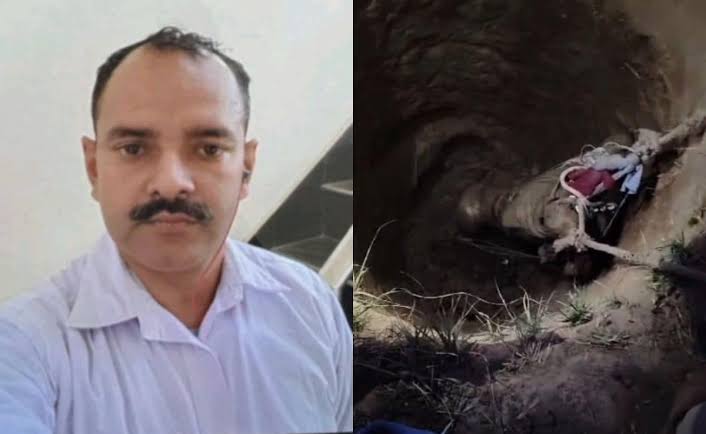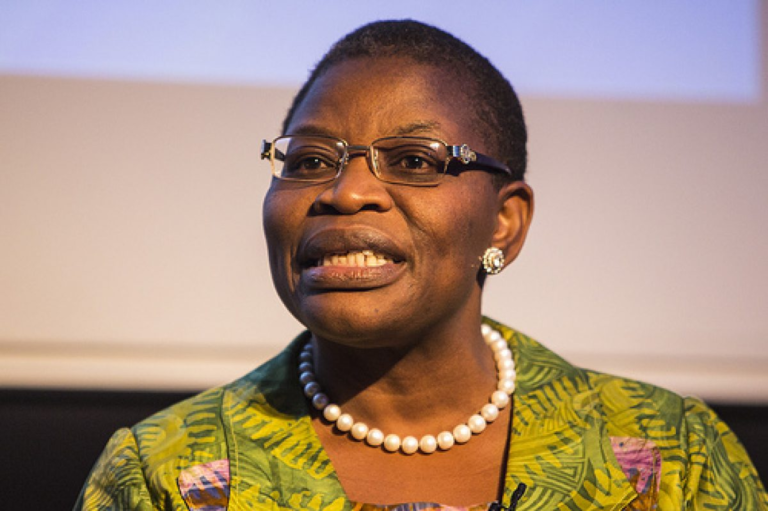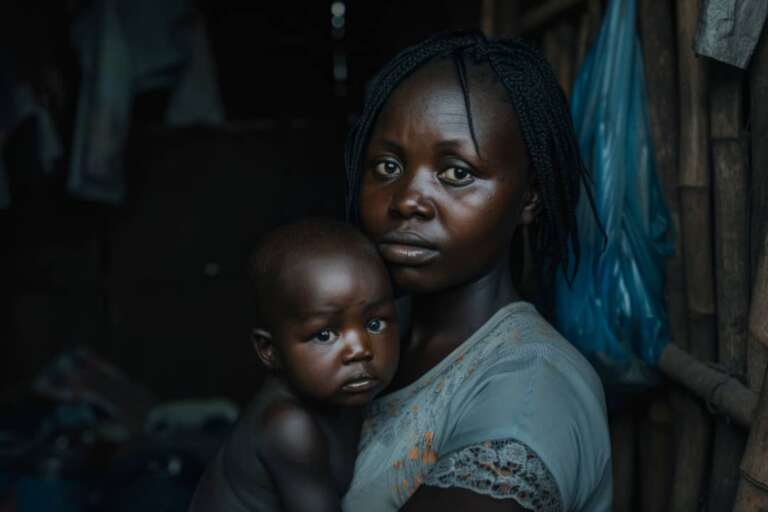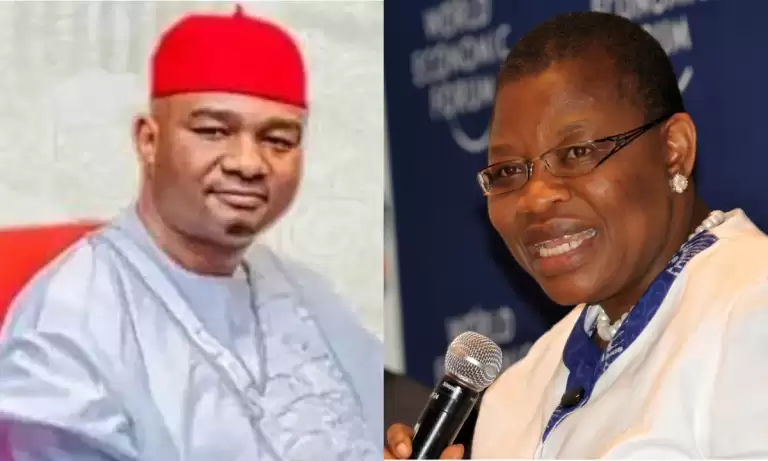By Olusegun Adeniyi
At the instance of the Emir of Qatar, Sheikh Tamim bin Hamad Al Thani, President Felix Tshisekedi of the Democratic Republic of the Congo (DRC) and his Rwandan counterpart, President Paul Kagame met in Doha last week in a bid to end the ongoing war in the DRC. The mindless violence in the eastern part of the country, according to the United Nations, has created one of the worst humanitarian crises in history, impacting nearly seven million people—half of them children. The situation is becoming even more dire with the recent capture of two major cities in eastern DRC, Goma and Bukavu, by Rwanda-backed M23 rebels. But in Doha, both Kagame and Tshisekedi agreed on an “immediate and unconditional ceasefire” that seems easier said than done.
Instructively, at about the time the two leaders were meeting, a video was trending on social media of an interview granted by Kagame where he brutally disparaged his Congolese colleague. “You know Felix (President Tshisekedi) spent many years in Belgium. He was a taxi driver. He was many things of that kind but with a very bad reputation. He was employed by an Italian man, an old man now, who had a shop selling pizza. Felix used to deliver Pizza for him,” Kagame claimed in the interview. “When this old man heard that Felix had become president of his country he said, ‘Oh, my God! Felix that couldn’t even do the job of delivering pizza, how did he become president?’”
I shared the anecdote at the 60th birthday colloquium in honour of Hon Emeka Ihedioha on Monday. Chaired by former President Olusegun Obasanjo, I had been conscripted to discuss the paper presented by Bishop Hassan Matthew Kukah on the theme, ‘Is Democracy failing in Africa?’ along with Alhaji Aminu Tambuwal and Mr Peter Obi, both of whom need no further introduction. The moderator, Maupe Ogun-Yusuf of Channels Television, had sought our views on whether democracy is indeed failing on the continent. With Tambuwal answering ‘No’ and Obi saying ‘Yes’, I responded with, ‘Yes and No.’ As a member of the birthday planning committee chaired by former Cross River State Governor Liyel Imoke (who decreed that I be on the panel at the last minute), we were deliberate about the kind of conversation we wanted to provoke.
After the session, Senator Anyim Pius Anyim (also needs no further introduction) told me that he thought my punchline would be that a man who could not deliver pizza would be incapable of delivering democracy and good governance to his people as president. That precisely was the point Kagame made, but I was hesitant to amplify his message that if Tshisekedi was found wanting in the simple task of prompt pizza delivery, it was expecting too much to saddle him with presiding over one of the most resource-endowed countries in Africa. Although I made the point in passing, I deliberately avoided pushing the envelope because it would detract from my central argument within the three minutes I was given. Besides, I had my doubts about the veracity of Kagame’s claim.
From my online check, the report Kagame alluded to was published by a Rwandese journalist, Tom Ndahiro who referenced a Belgian publication. One Francisco Piscopo, owner of Pizzeria Godo in Brussels, was said to have recalled his time employing Tshisekedi for three years. “He runs Congo the same way he delivered pizzas: always late, disorganized, and with missing funds that no one can explain” Piscopo reportedly said. “If I could give him one piece of advice, it would be to take his responsibilities more seriously.” I have read reports which suggest that the story was made up since Tshisekedi comes from a privileged background. His late father, Étienne Tshisekedi, was Prime Minister of Zaire in the 90s. When children of African leaders go to school or reside abroad, they rarely do odd jobs such as selling pizza. Therefore, I would rather take the Felix who couldn’t deliver pizza as a metaphor. I will come back to this shortly.
Every democracy, Kukah said in his thought-provoking presentation, is a work in progress. “Democracy gives you the opportunity to try if you failed and gives you a greater opportunity to correct the former mistakes,” the Catholic Bishop of Sokoto Diocese stated. Tambuwal shared his position, but Obi disagreed. Obasanjo, of course, took a different slant. ‘Western type democracy’, he argued, seems too frail a plant to survive the African climate because it has been reduced to “government of a small number of people, by a small number of people, over a large number of people who are deprived of what they need to have in life.” My problem with Obasanjo’s thesis, on which he has been very consistent, is that it presupposes that the pre-colonial leadership model offers better prospects of delivering the public good.
It is interesting that just about a week ago, Obasanjo publicly lamented the process of selecting traditional rulers in the country. “Today, there are criminals, drug addicts, vagabonds, bandits and kidnappers as so-called traditional rulers” Obasanjo said. “This is a great pity, and it has greatly contributed to the problems of Nigeria. How do we account for a traditional ruler snatching a ballot box at an election polling station and running away with it?” he queried. Reflecting on the past, Obasanjo said traditional rulers used to command respect, particularly during the colonial and early post-independence periods, but not anymore. “The class of traditional rulers with their distinction, honour and dignity, as we knew them in the colonial days and early post-independence days, has been diluted and polluted.”
Although the former president is yet to clarify his thoughts on ‘Afro-democracy’ (perhaps he needs to write a book on the issue), it looks to me like a throw-back to the era of the all-powerful traditional ruler who cannot be questioned (‘Kabiyesi’ in Yoruba parlance). “It’s now our responsibility to chart our own course. Western liberal democracy introduced the concept of opposition, equating it with enmity. Yet, there’s nothing inherently African about this model,” Obasanjo told a House of Representatives delegation last year when they came to seek his support for their bill to replace the current presidential system with the parliamentary system we practiced in the First Republic. Incidentally, I also had an informal session with prominent members of the group in Abuja last year, and I made it clear to them that the challenge of democratic governance in Nigeria comes more from the operators than the constitution or the system of government. For instance, if the same traditional institution that worked in the past is now ‘diluted and polluted’, why does the former president believe that changing the system of government in Nigeria will not suffer a similar fate since it would be operated by the same set of people?
Indeed, nothing illustrates the crisis of the traditional institution better than the process that eventually culminated in the enthronement of the current Alaafin of Oyo, Oba Abimbola Owoade. A former vice-chancellor of Obafemi Awolowo University and globally renowned traditionalist, Professor Wande Abimbola, 92, whose intervention eventually led to a resolution of what had become a logjam, revealed some sordid details. “The kingmakers were consulted to pick a successor, and then interested individuals started giving hefty money to influence their decision. This later divided the rank of the kingmakers because they discovered that the money their leader shared to them was a far cry from what he collected,” Abimbola revealed while explaining how he was asked by Oyo State Governor Seyi Makinde to consult the Ifa Oracle on the matter. “The five kingmakers had earlier supported a particular prince who gave them the heaviest sum but after discovering the act perpetrated by their leader, two of them backtracked. They reached out to the government to say they were no longer in support of the candidate, adding that they just discovered that the money their leader collected from the said prince was incredibly heavy from which he gave them peanuts.” In Yorubaland today, according to Abimbola, enthroning a king is now a cash-and-carry affair. “They would buy generators, cars and what have you for the kingmakers to influence the process. The kingmakers may collect money from a hundred candidates, it’s the highest bidder that they will give the stool to. That’s how they are doing it now.”
The lesson is that there is no system that cannot be compromised. So, at the end of the day, it’s about fidelity to the rules of engagement by the operators and being accountable to the people. But before I conclude, let me come back to the Rwandese journalist who amplified the statement of his president to knock Tshisekedi. According to Ndahiro, the fortune of a country is determined by the leader. So, if such an individual lacks the requisite qualities of discipline, honesty and dedication to duties, it is their people who would suffer the consequences. “The man who once struggled to deliver pizzas in Brussels and now struggles to deliver governance in the DR Congo, serves as a lesson in why evaluating a leader’s past is critical to understanding their potential for national leadership”, Ndahiro wrote, while highlighting what he sees as the failings of Tshisekedi.
I do not agree with the clearly partisan premise of Ndahiro, but it is difficult to fault his thesis that a leadership recruitment process that ignores such important factors is doomed. Therefore, whether it is ‘Western style democracy’ or the traditional system of the pre-colonial era, if the person at the helm is a ‘Felix that couldn’t deliver pizza’, the system would also not deliver on the public good.
Since whatever goes for Nigeria goes for Africa, the crisis of democracy on the continent is the result of a combination of history, cultural deformities and impunity by a succession of leaders. In post-colonial Africa, the traditional codes of competence, discipline and integrity have also been superseded and replaced by the anarchy of cultism, the worship of corrupt money and transactional religion. And democracy or whatever other system we come up with can only reflect these factors in our contemporary society. The pertinent question therefore is, how do we enthrone a system that shuts out those like ‘Felix that couldn’t deliver pizza’ from critical leadership positions?
That for me is the real challenge across board, and in all spheres of our national life.
Bereavement of Wunti, Ehusani
Hajiya Aishatu Al Mustapha died last week in Bauchi State. She was the mother of my friend, Bala Wunti, the Chief Health, Safety and Environment Officer of the NNPC Ltd. May God comfort the family she left behind. And may He grant her Aljannah Firdaus. Also yesterday in Abuja, I attended the Service of Songs and Mass for Mama Catherine Matureyi Ehusani, mother of Father George Ehusani, who also preached a very powerful sermon at the occasion attended by many Catholic priests, including John Cardinal Onaiyekan. She will be buried today in Okene, Kogi State. In the tribute to his late mother written as a poem, Father George recollects: Like a weary caravan sighting an oasis/I skid at my mother’s love/With a smile as wide as the sea/For an embrace as deep as the ocean.
May she find perfect peace and may God continue to comfort the family.
Ayo Olukanni @ 70
Former Nigeria ambassador to Australia with concurrent accreditation to New Zealand, Fiji, Papua New Guinea and Vanuatu, Mr Ayo Olukanni, is 70 today. A career diplomat who had at various times also served in Brussels, New York, Tel Aviv, Nairobi, Vienna etc was for four years the Director General of the Nigerian Association of Chambers of Commerce, Industry, Mines, and Agriculture (NACCIMA) after his tour of duty in foreign service. I first met Olukanni when I was presidential spokesman, and he was spokesman to the Ministry of Foreign Affairs at the time. Despite being senior to me in age and not minding his public service experience and exposure, he treated me with much respect and sought the assistance of my office all the time. With that, we worked seamlessly together. As he joins the elite Septuagenarian Club today, I can only wish him happy birthday, long life and good health.
• You can follow me on my X (formerly Twitter) handle, @Olusegunverdict and on www.olusegunadeniyi.com

